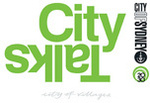This is a free event limited entrance tickets are available from Ticketmaster on 136100 or via the link.
Tuesday 8 July 2014 6.30pm - 8pm Sydney Town Hall George Street, Sydney
Description: Joseph Stiglitz - The Price of Inequality
Hear Nobel Prize-winning economist Joseph E. Stiglitz and a panel of experts discuss the price of inequality and what happens to communities when the issue is ignored.
Can we improve social wellbeing and address relative inequality while creating productive economies and liveable places with good public transport, social infrastructure and services?
How do we create well-connected communities that improve our physical and mental health?
The City of Sydney is developing a Social Sustainability Discussion Paper to consider the social issues that shape our communities – and ways we can all share the responsibilities and rewards of creating a better, fairer society.


I wonder how the entities which command Australia (through puppets as Tony Abbott, Joe Hockey, etc.) feel about the proliferation of these ideas.